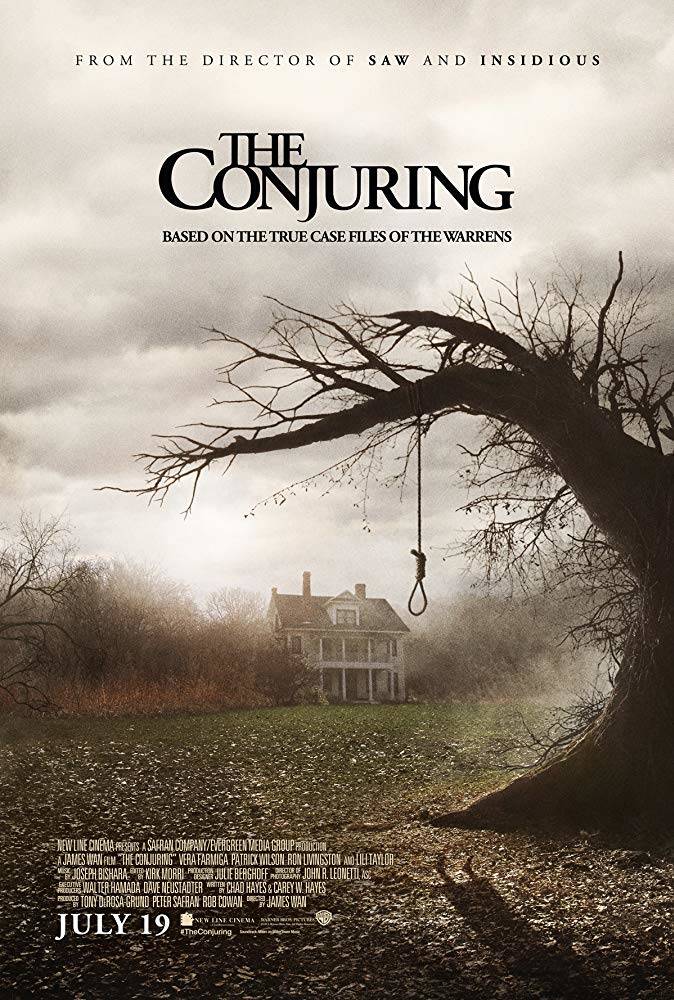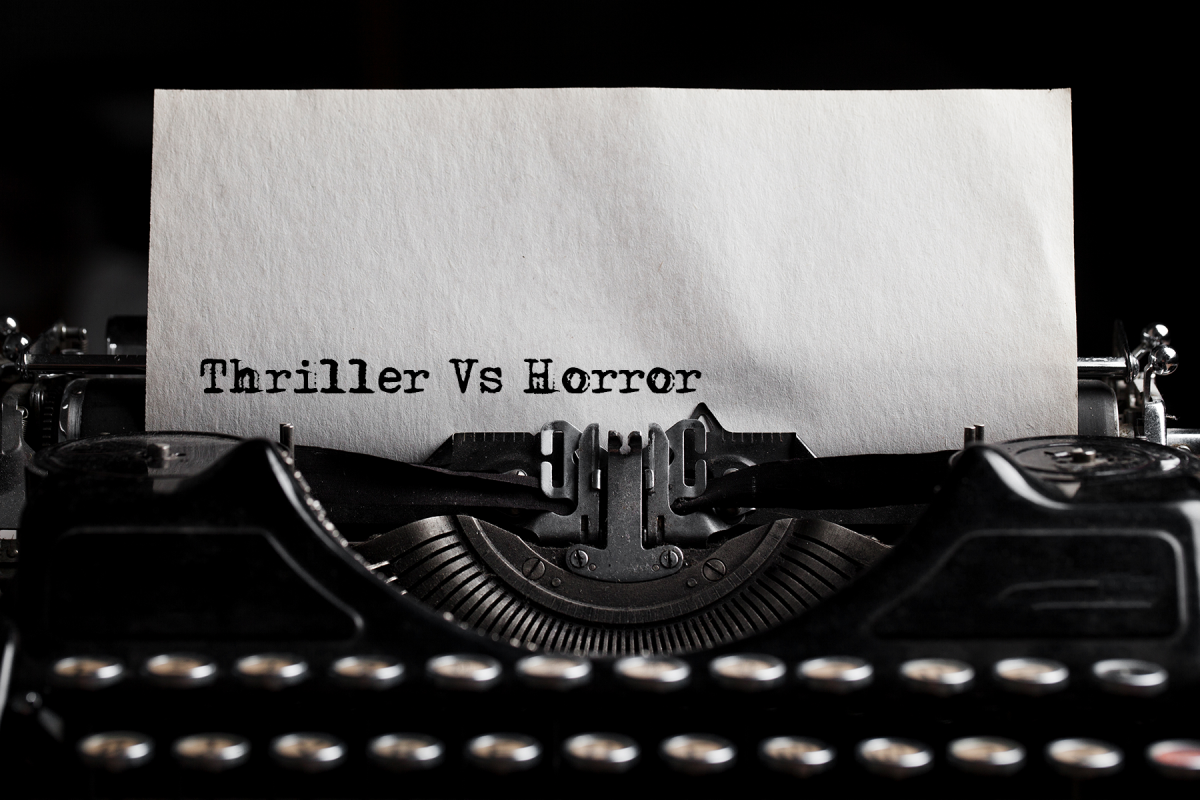Calling all film buffs, we’re about to play a game – Jigsaw style. There are many ways to differentiate horror vs. thriller films, and have no fear (pun intended)… we’re going to explain them all shortly. That being said, there is something important to note about thrillers. You’ve probably lived one. The time you forgot your project at school, tried to figure out the mystery of your favorite show, or just played a very stressful football game. These real world scenarios all build up undeniable tension and create a climactic moment that you’ll never forget… which is what thrillers are all about. Now, are you ready to talk about the gore, ghosts, and gross aspects of horror? Let’s discuss these differences in the horror vs. thriller debate.
Horror vs Thriller: What to Know
Horror
Don’t be fooled by Michael Jackson’s iconic “Thriller” music video with dancing zombies, these creatures would most likely belong to the horror genre. Why? Because the horror genre is all about scaring you. A horror movie creates a terrifying atmosphere that produces feelings of dread, terror, and tension about the inevitable doom coming your way – at the hands of a serial killer, witch, ghost, or occasional mix of the three (Bathsheba from The Conjuring, anyone?). That brings us to our next point about the difference between horror and thriller movies… the latter falls into a few “unofficial” genres: killers, paranormal, psychological horror and monsters.

Horror franchises like Friday the 13th and The Conjuring have all the jump scares, dead people, gore and paranormal elements you need to become frightened out of your mind, and they’re inspired by classic supernatural horror films like 1931’s Dracula and Frankenstein. While these films were made decades apart, all of them encompass the key elements of the horror genre to present the audience with an evil antagonist – and present the protagonist’s journey to escape it. Sometimes successfully, and sometimes not. The “tldr” of this lengthy paragraph about the two genres? The premise of horror movies is to do just that… horrify the audience. In fact, the word “horror” originates from the Latin word “horrere,” – to tremble or shudder, just like you’ve done in every horror film in the Saw franchise since 2004.
Speaking of Saw, the terrifying Jigsaw is just one of the many iconic monsters that you’ll recognize within the horror genre. There’s also Samara from The Ring, Freddy Krueger from A Nightmare on Elm Street, Pennywise from IT and more frightening monsters that have haunted your dreams for decades. If the killing sprees and psychological torment weren’t enough to scare you, all you need to do is glance at one of these creatures. Each is made with a demented design to instill terror in all who look at them – and this first impression will be one of fear and discomfort, as opposed to the tension and suspense that typically occurs while watching thriller films. These monsters don’t just serve as a symbol of the horror genre as a whole, they’re also a key factor in understanding the horror and thriller differences. And speaking of which, let’s talk about the latter!
Thriller
Don’t think that thriller films aren’t just as scary as the horror genre, because they truly can be- just in a different way. You’ll still have occasional dead people and serial killers, but they aren’t there just to make you scream. As the name suggests, the goal of thriller films is to thrill you and bring the audience to the edge of the movie theater seat – building up tension and suspense throughout the movie while watching a mystery unravel in fascinating ways. There’s a good chance that thriller movies will leave you biting your nails and shaking your leg with nervousness as opposed to screaming and clutching your partner’s hand like a scary movie might, and this is one of the greatest differences between horror and thriller films.

Thriller films are a bit more mainstream than horror films, for lack of a better term. Don’t get us wrong, the horror world has reached cult status over the decades… but it typically attracts a specific type of crowd. Meanwhile, nearly everybody can enjoy a good psychological thriller like Gone Girl, Black Swan, or Split. In fact, two out of three of these films have been nominated for an Academy Award… a rare (if not unheard of) feat for a traditional horror film. When you think about these films from the thriller genre, they’re quite a bit different from the horror films we discussed earlier – with less killer clowns and gore and more mystery and suspense. The protagonist often deals with themes like identity, loss, death, existence and perception – and you’ll feel like you’re solving the mystery alongside them as you decipher hard-to-find clues within the plot of a thriller film.
A great example would be Martin Scorcese’s 2010 psychological thriller film Shutter Island, in which Leonardo DiCaprio investigates the patients at an insane asylum as he discovers that he’s not as sane as he once believed. And then there’s the thriller television shows that bring horror elements like serial killers, blood, and death – such as Dexter and You. Many of us have that one friend who just is too much of a scaredy-cat for classic horror films (okay, maybe you are that friend)… and thrillers are often the ideal compromise for a scary and suspenseful good time.
Differences Between Thriller and Horror

The differences between horror and thriller films aren’t always as black-and-white as we’ve explained above, as there are certain movies that have equal elements of both. Think The Quiet Place, Silence of the Lambs, and Get Out. And then there’s The Sixth Sense. It has dead people and paranormal elements, so it must be a horror movie, right? Wrong. The ghosts that Haley Joel Osment sees aren’t meant to be a source of fear, but rather a plot device to build tension and unveil one of M. Night Shymalan’s most famous twist endings. It may seem confusing, but there are a few ways to determine whether you’re watching a horror or a thriller film.
You know the trope of the girl who goes down into the basement alone, despite the entire movie theater yelling at her not to, and gets murdered instantly by a masked monster? It’s a key example of the predictability in horror movies. We’re definitely not saying that you should predict the ending immediately, but scary flicks often come with a few tropes that you can recognize. Think empty cabins, picking up the phone with nobody there, and the first three friends getting murdered before the protagonist finally realizes that evil is at bay. Meanwhile, a thriller should be next to impossible to predict without an eagle eye, and three times rewatching the film. It’s just the way it is.
Remember when Jessica Lange said “all monsters are human” to Evan Peters in American Horror Story: Asylum? It’s a common theme in both the horror and thriller genres, but especially the latter. Thrillers focus less on evil monsters and distorted figures to uncover the scary aspects of real life – such as losing your memory, getting kidnapped, or being tricked by humans that you thought were close to you. And since humans are so complex, it’s pretty rare that you’ll guess the plot twist of a thriller halfway through the film. Not the good ones, anyway. What’s your favorite thriller film that you initially thought was horror? Or vice versa? Tell us, as we want to know about your favorite tales of scares and suspense.

I am a lifelong pop culture junkie with immense passion for all forms of art and entertainment. On a typical weekend, I can be found at a concert or musical, chasing ghosts on the Haunted Mansion at Disneyland, or watching way too many makeup tutorials on YouTube.


